Place your adverts here on InfoDig @ low rates; banner ads, sponsored links and guest articles etc. Contact us

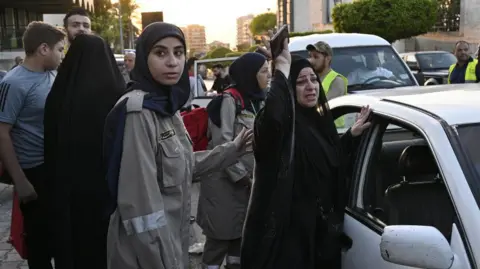 EPA
EPA
A Lebanese civil defence member comforts a woman who arrived in Beirut after fleeing the south
Thousands of Lebanese have been fleeing the south of the country after Israel launched hundreds of air strikes beginning as day broke.
Across southern Lebanon families scrambled together belongings and headed north in cars and trucks and on motorcycles as the Israeli military struck targets it said were linked to the Lebanese Shia armed group Hezbollah.
Some residents reported receiving warnings in the form of text messages and voice recordings from the Israeli military to leave areas near the Iran-backed group’s positions.
Zahra Sawli, a student in the southern town of Nabatieh told the BBC's Newshour programme the bombardment was intense.
"I woke up at 6am to the sound of bombing. By noon it started to get really intense and I saw a lot of strikes in my area."
"I heard a lot of glass shattering."
Unlike many, she and those she was with did not leave the house - they didn't dare, she said.
"Where are we supposed to go? A lot of people are still stuck on the streets. A lot of my friends are still stuck in traffic because a lot of people are trying to flee," she said.
- Live coverage
- Bowen: Israel believes it has weakened Hezbollah but escalation still risky
- Cold military logic takes over in Israel-Hezbollah conflict
By the middle of the day roads north towards Beirut were clogged with traffic, with vehicles heading towards the capital on both sides of a six-lane coastal highway.
Other images showed people walking along the beach in the southern city of Tyre as smoke rose from air strikes in the countryside inland.
The BBC spoke to one family of five who had arrived in Beirut on a single motorbike.
From a village in the south, they were heading to Tripoli in the north. They were exhausted.
"What do you want us to say? We just had to flee," the father said.

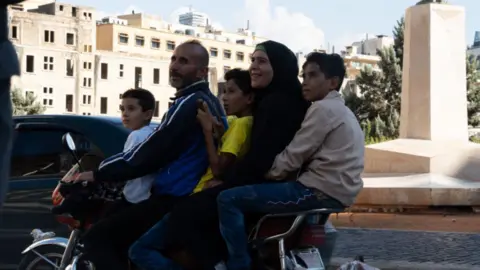 Hassan Harfoush
Hassan Harfoush
"What do you want us to say? We just had to flee," this man told the BBC
By Monday evening the Lebanese health ministry reported that 356 people had been killed and more than 1,200 injured in the bombardment. It said at least 24 children were among those killed. The Israel Defense Forces (IDF) said it had carried out 1,100 strikes over the previous 24 hours.
That included an air strike in southern Beirut that the IDF said had targeted a senior Hezbollah commander.
In Beirut too there was widespread anxiety. As people from the south arrived in the capital in cars with suitcases strapped to the top, some of the city's residents were themselves leaving.
Israel has warned people to evacuate areas where it says Hezbollah is storing weapons - but it also sent recorded warnings to people in Beirut districts not considered Hezbollah strongholds including Hamra, an area home to government ministries, banks and universities.
Parents rushed to pick up their children from school after receiving more warnings to leave the area.
One father, Issa, took his son out of school, telling Reuters news agency: "[We're here] because of the phone calls.
"They’re calling everyone and threatening people by phone. So we’re here to take my boy from school. The situation is not reassuring," he said.

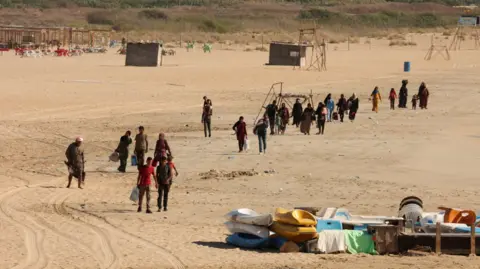 Reuters
Reuters
People carry their belongings as they leave the beachside city of Tyre - one of the southern Lebanon cities hit on Monday
Mohammed, a Palestinian man on the road with his wife, spoke to the BBC on the way out of Beirut.
When asked if he would stay in the capital he said: "In Lebanon nowhere is safe, Israel is saying they are going to bombard everywhere. Now they threatened this neighbourhood, so where should we go?"
"It’s scary, I don’t know what to do - work, go home, no idea what to do."
Meanwhile as a BBC crew set up on one side of the road, a taxi driver called out asking if they knew of a fuel crisis unfolding. “Too many people are coming to Beirut,” he said.
Schools have been hastily converted into shelters for the streams of evacuees coming from the south. On a government order, schools in Beirut and Tripoli as well as eastern Lebanon were established as shelters.
The BBC was at a classroom at a public school in Bir Hasan, west Beirut on Monday which was being prepared for people coming from the Bekaa Valley - a Hezbollah stronghold in north-eastern Lebanon which Israel said it was targeting too.
The classrooms were stacked with mattresses but would be fully occupied by the end of the day, workers said.

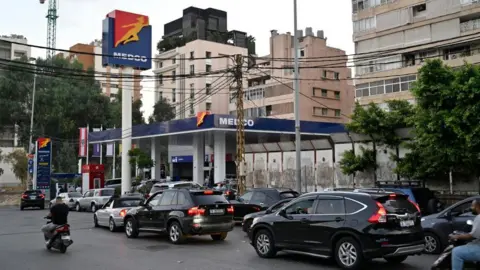 EPA
EPA
There have been long queues at petrol stations in Beirut
Meanwhile Lebanon’s hospitals were also ordered to cancel all non-elective surgeries on Monday as physicians braced for a wave of casualties and injuries.
Despite the tense and uncertain atmosphere in Beirut, some people were defiant.
"If a total war happens, we should stand as Lebanese people together regardless of our political affiliations because at the end of the day, our country is getting bombed," one man told the BBC.
Others were simply resigned to the violence.
"If they want war, what can we do? It was imposed on us. We cannot do anything," shop owner Mohammed Sibai told Reuters.
Mohammed, a 57-year-old in the southern Beirut suburb of Dahieyh - Hezbollah's main power base in the capital - told the BBC he had "survived all the wars since 1975" so "it's normal for me".
"I will not leave, I will be in my house," he said.

 2 hours ago
29
2 hours ago
29
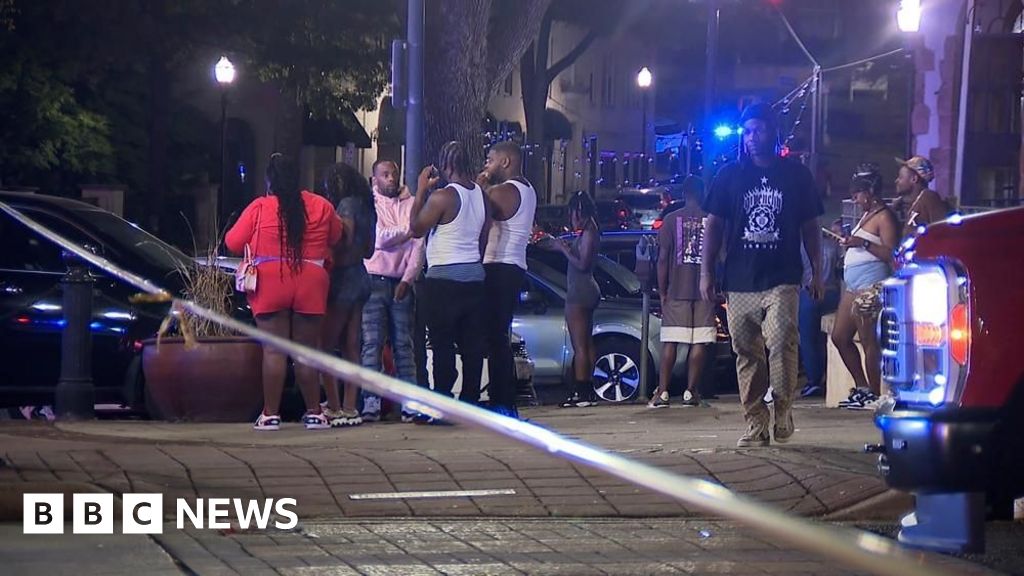
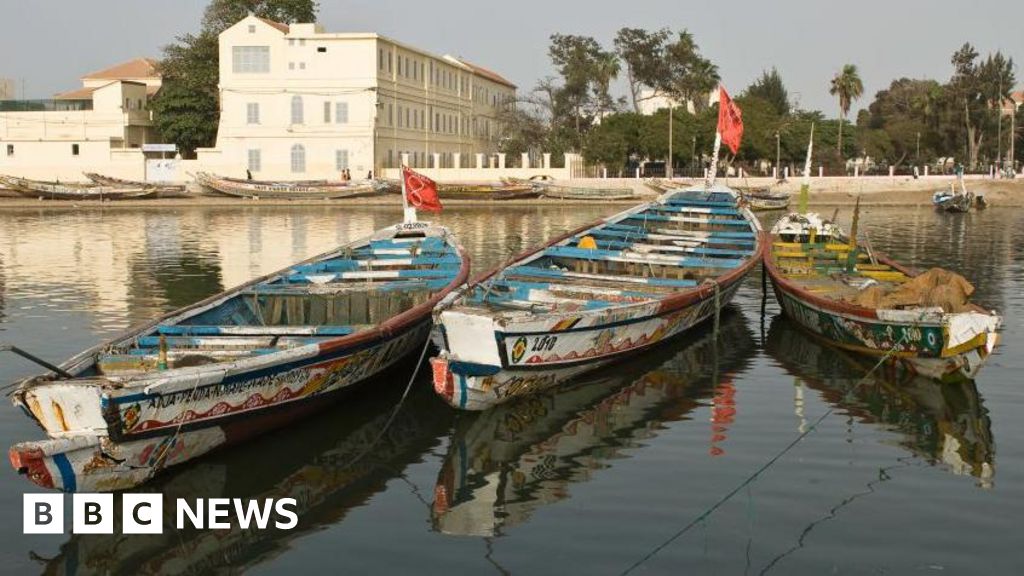







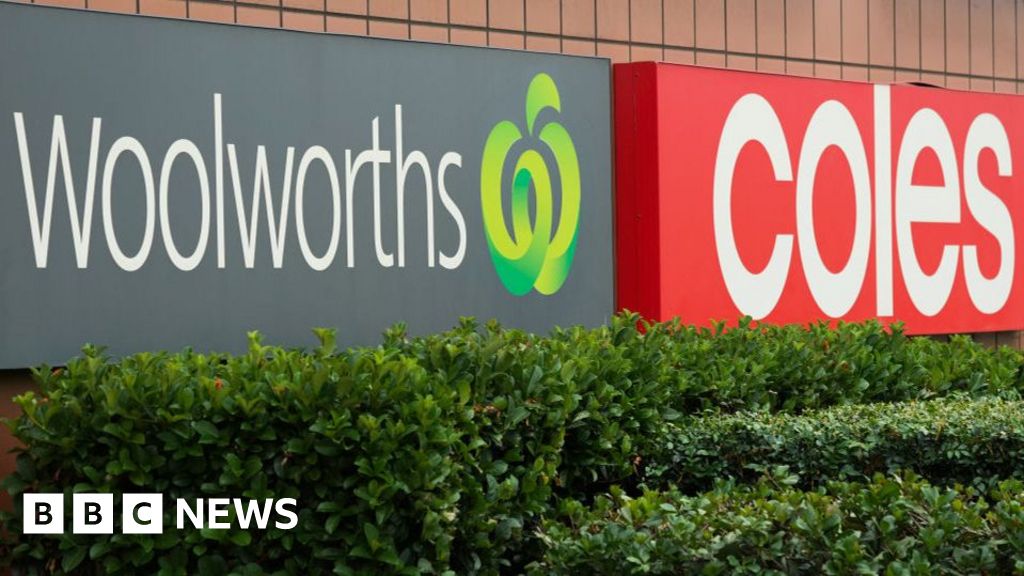




 English (US) ·
English (US) ·